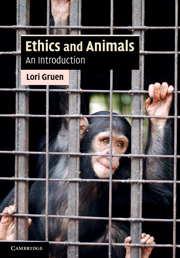5 - Dilemmas of captivity
Published online by Cambridge University Press: 05 June 2012
Summary
In 1953, in the forests of Sumatra, Indonesia, a five-year-old elephant, later named Shirley, was captured and sold to the Kelly–Miller Circus. As of this writing – fifty-seven years later – she is still alive. During her first twenty-five years in captivity, she was a circus performer. In 1975, while performing for the Lewis Brothers Circus, Shirley was attacked by another elephant, and her right back leg was severely broken and never properly healed. After performing for two more years, even with her badly injured leg, she was sold to the Louisiana Purchase Gardens and Zoo in Monroe, Louisiana where she remained for over two decades, chained by the hind leg, without other elephants. Shirley did have a compassionate human caregiver, Solomon James, who looked after her at the zoo for the next twenty-two years.
Then, in 1999, it became clear that Shirley would do better living with other elephants and with space to roam, so the zoo retired Shirley to the Elephant Sanctuary in Hohenwald, Tennessee. There she would be able to spend the rest of her years roaming over hundreds of acres with other female Asian elephants. She was accompanied on her trip from Louisiana to Tennessee by her caregiver, Mr. James, and the event was videotaped for what would become an Emmy-award-winning documentary by Allison Argo entitled Urban Elephants. The scenes of James saying his farewell are unforgettable. As he gave Shirley her last hose bath, with tears in his eyes, he removed her ankle chain.
- Type
- Chapter
- Information
- Ethics and AnimalsAn Introduction, pp. 130 - 162Publisher: Cambridge University PressPrint publication year: 2011



